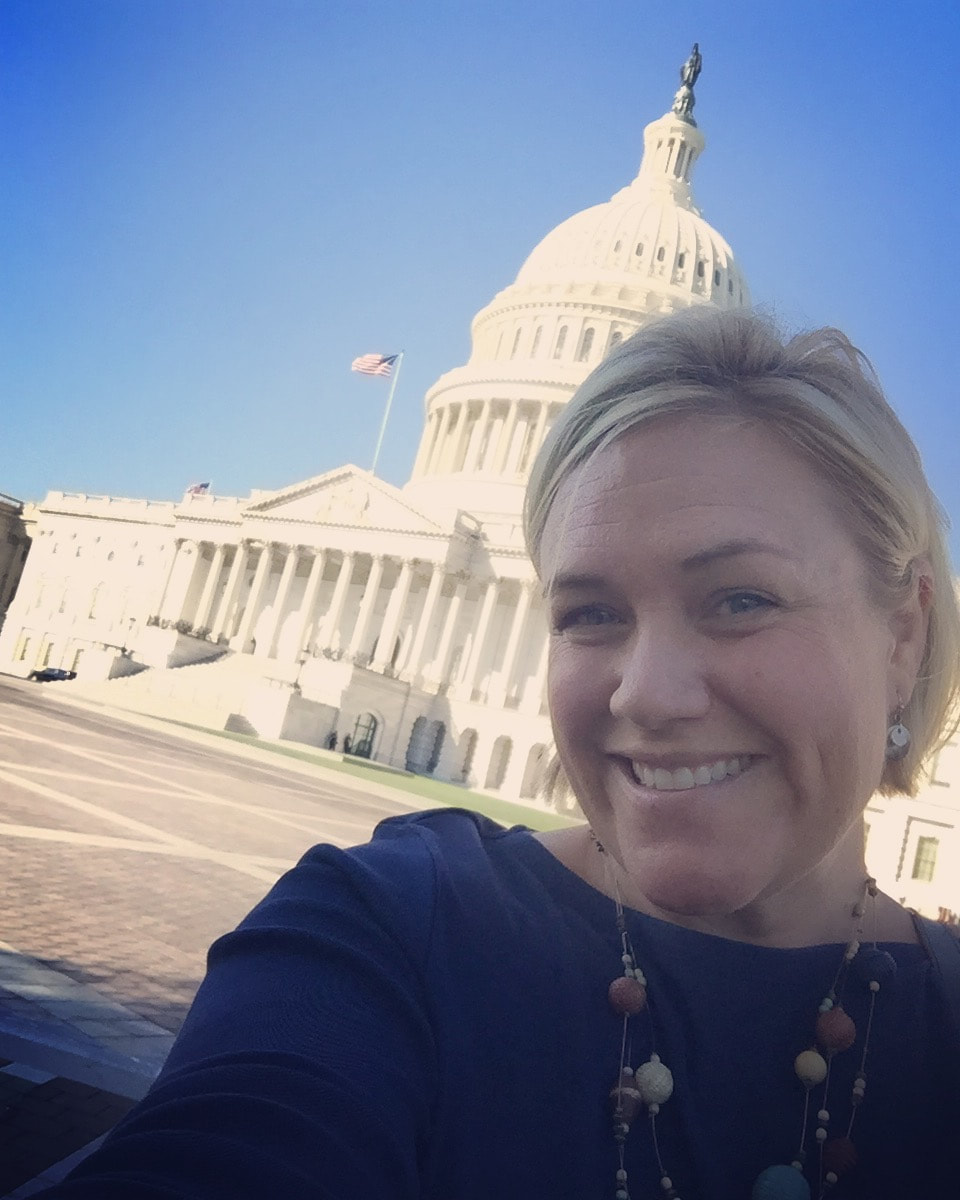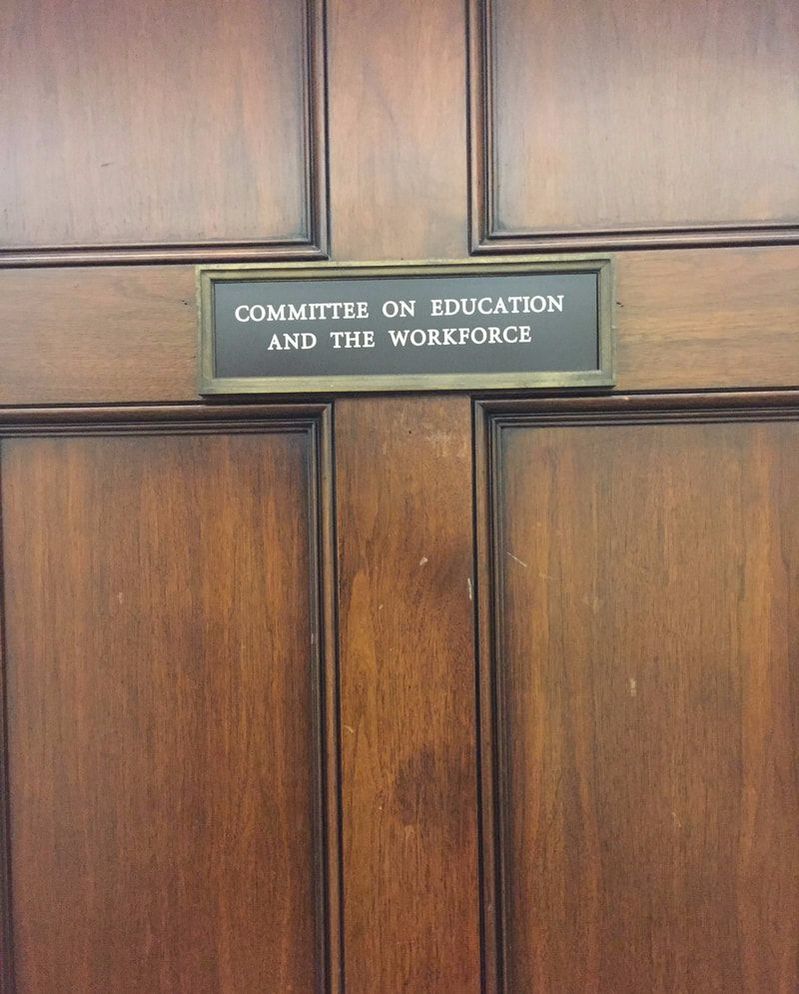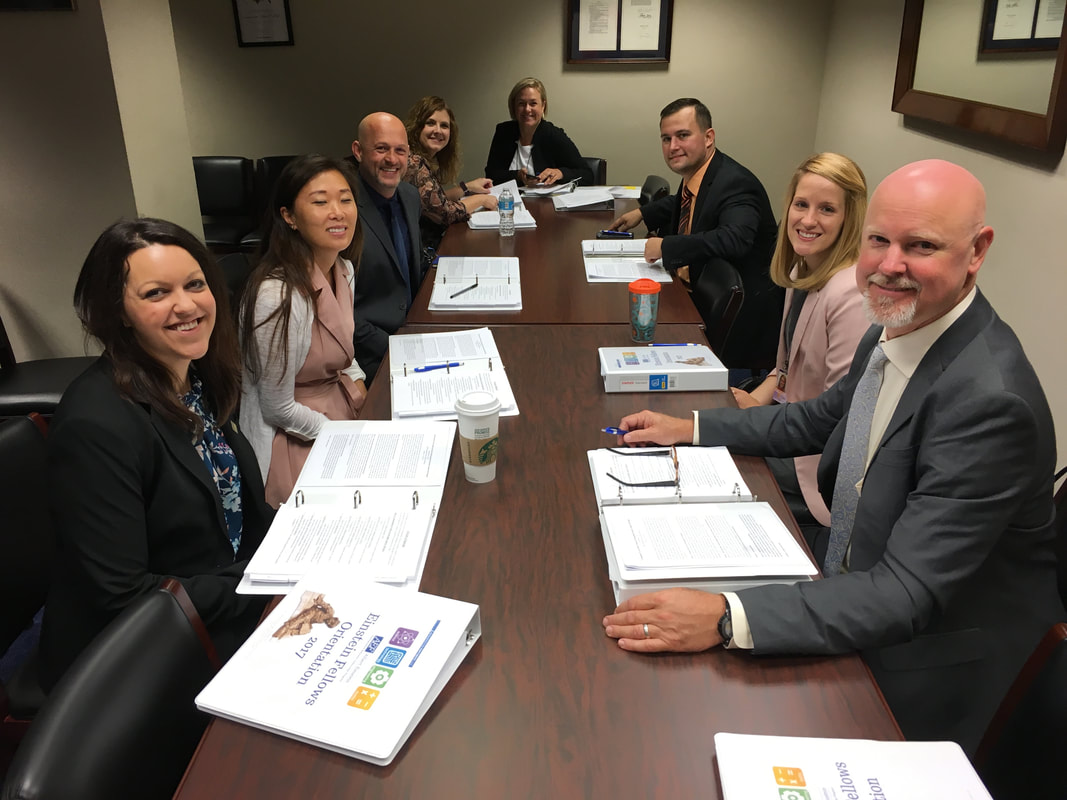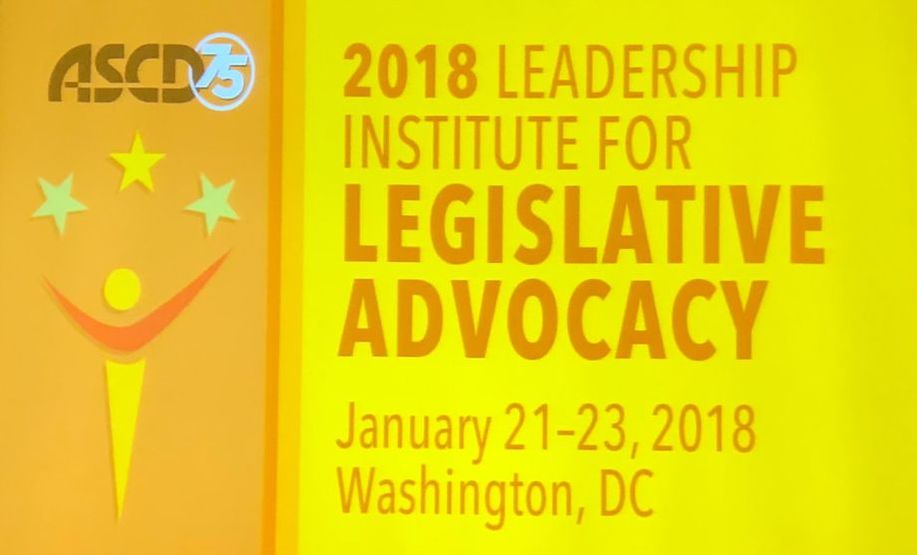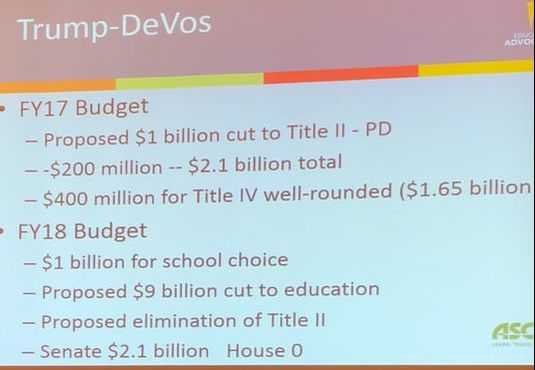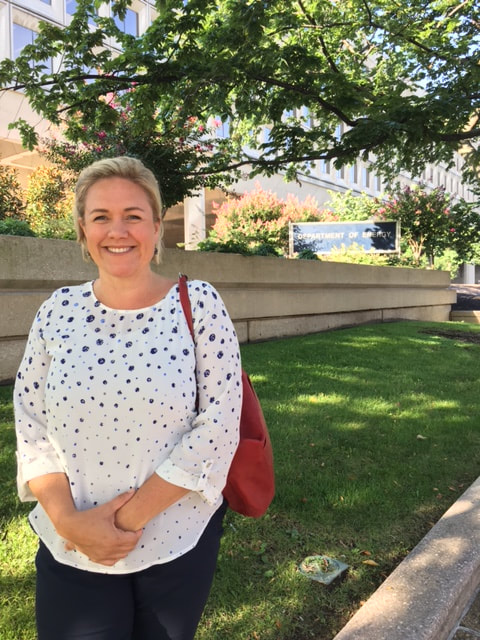|
The last government/civics class I took was 25 years ago, when I was a senior in high school. I did well in that class and have since tried to be an informed voter (especially around my core issues of concern). However, it's been a long time since I really took any deep dive into federal processes and policy. A benefit of the Einstein Fellowship has been my exposure and learning about the authoring of bills and appropriating of funds by our government representatives. I feel like during this fellowship I've earned a political science degree at a rate analogous to drinking water from a fire hose. During the September orientation, the Einstein Fellows were indoctrinated to federal education policy through written briefs and presentations (by Washington Partners, LLC) that provided a broad overview of the major pieces of enacted federal education legislation.
Given the renewal dates on these laws and lack of educational policy change looming in the field of view, a major take away for me is that education is not a priority of the federal government. Education was not a major topic of discussion during the 2016 presidential campaign and it continues to be on the back burner of federal policy concerns. Depending on your political leanings, this is either a "good or bad" reality. The majority of my fellowship experience has NOT been focused on educational policy. However, between January 21 and 23, I was able to attend the ASCD Leadership Institute for Legislative Advocacy. The goal of the three day institute was to expand the influence and voice of educators in federal legislative process. Honestly, I had to fight an internal fear of coming across as a "creepy lobbyist" because let's face it, in Washington, D.C. advocacy = lobbying. Luckily, the reputation of teachers as good people work care deeply for students and learning is strong. Very, very few people would say, "oh, there's a teacher.... She must be a horrible person." So, that's good! The stated goals of the sessions were for teachers to:
For me, an issue of interest is the status of Title II funding for teacher professional development. Title II is part of the Every Student Succeeds Act (ESSA) that funds professional development to teachers of every subject as well as all other school staff, such as librarians, counselors, and paraprofessionals. It also recognizes that educators learn best when they can collaborate and immediately apply what they learn by explicitly requiring ongoing job-embedded activities that improve instruction. Title II funding is also used for programs that recruit, train, and retain effective school leaders. Edweek wrote an article summarizing how states are using Title II funds to strengthen the teaching profession. As I write, the future funding for Title II programs is uncertain. Under normal order, the annual budgeting and funding process for the federal government begins with the president sending his budget request for the next fiscal year to Congress. Next, Congress crafts its own budget resolution and begins the appropriations process to determine funding levels for federal programs. However, our government is currently not operating under normal order! At the time of this conference, the federal government is being funded through a series of short term continuing resolutions. Even though it is already 2018, the 2018 federal budget has not been approved and the president, and the house and senate have very different proposed allotments for appropriating funds. So, Title II's future remains in doubt. The 2018 proposals are a maintenance of $2.1 billion dollars in the senate budget, and $0 dollars (NONE AT ALL, full elimination) in the congress and presidential budgets. I personally would like to see Title II funded. UPDATE: When the 2018 funding omnibus was signed into law in March (funding the government through September), the education community was pleased to see the majority of the programs at least level funded. Title II was not eliminated. The following lists the recent appropriates for Title II of ESEA (billions):
|
Archives
July 2018
|
I give many of my IB Biology resources away, for the benefit of students and teachers around the world.
If you've found the materials helpful, please consider making a contribution of any amount
to this Earthwatch Expedition Fund.
Did I forget something? Know of a mistake? Have a suggestion? Let me know by emailing me here.
Before using any of the files available on this site,
please familiarize yourself with the Creative Commons Attribution License.
It prohibits the use of any material on this site for commercial purposes of any kind.
If you've found the materials helpful, please consider making a contribution of any amount
to this Earthwatch Expedition Fund.
Did I forget something? Know of a mistake? Have a suggestion? Let me know by emailing me here.
Before using any of the files available on this site,
please familiarize yourself with the Creative Commons Attribution License.
It prohibits the use of any material on this site for commercial purposes of any kind.
